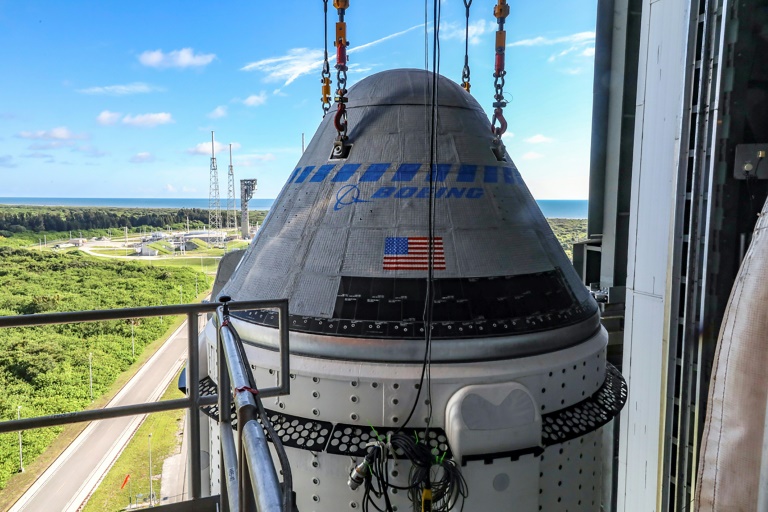Boeing’s Starliner won’t launch Wednesday as had been planned following problems with its propulsion system that prevented a key uncrewed test flight to the international space station a day earlier — and it’s not clear when the troubled spaceship will fly next.
The aerospace giant said in a statement that valves in Starliner’s engine were in “unexpected” positions, forcing the mission team to halt the countdown.
NASA added that engineering teams have ruled out several potential causes, including a software glitch, but need more time to understand the issue.
“We’re going to let the data lead our work,” said John Vollmer, vice president and program manager of Boeing’s Commercial Crew Program.
“Our team has worked diligently to ensure the safety and success of this mission, and we will not launch until our vehicle is performing nominally and our teams are confident it is ready to fly.”
The issue is just the latest to delay the development of the gumdrop shaped capsule, which Boeing built under contract with NASA to ferry astronauts to low Earth orbit following the end of the Space Shuttle program.
During an initial uncrewed test flight in December 2019, the Starliner capsule experienced software glitches that caused problems with the way it fired its thrusters.
As a result, Starliner did not have enough fuel to reach the ISS and had to return to Earth prematurely, and a subsequent investigation showed it almost experienced a dire flight anomaly while reentering the atmosphere.
Scheduled launches since then were delayed for various reasons, including ongoing software issues and, last week, a Russian science module that knocked the International Space Station off kilter after it docked.
Boeing needs to succeed with an uncrewed test flight before it can be entrusted with flying humans.
SpaceX, the other company given a multibillion dollar contract by NASA for taxi rides, has moved forward faster, having now undertaken three crewed missions.









